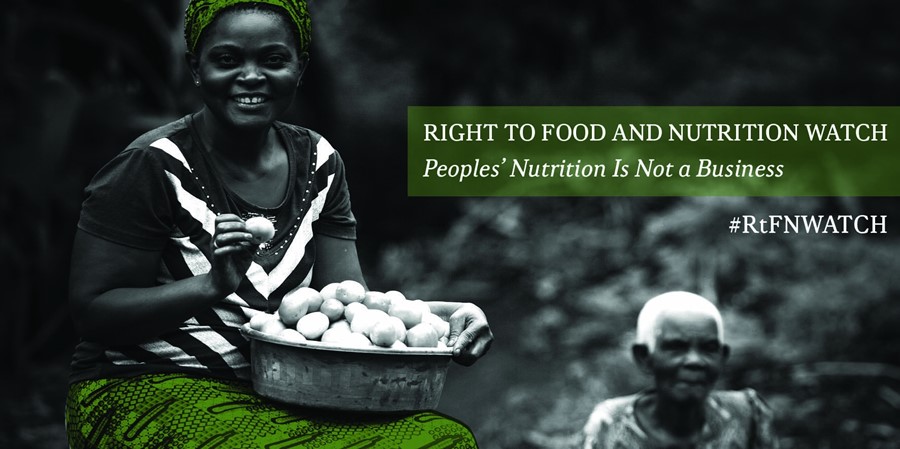
Report promoted on the occasion of the World Food Day
On the occasion of the World Food Day, CIDSE promotes the civil society-led Right to Food and Nutrition Watch report 2015, “Peoples’ Nutrition Is Not a Business”, shedding light on the control businesses have over food systems and policies. CIDSE relates to several issues tackled in the report, which are also reflected in our work on Business and Human Rights and Just Food. CIDSE has also actively been following the issue of the corporate takeover while working on the G7/G8 new alliance for food security in Africa as well as on the Global Alliance for Climate Smart Agriculture.
The report acknowledges that “corporate capture”, the control exerted by businesses, has skyrocketed. Particularly present since the food-price volatility crisis shook the world in 2007/08, this reality is putting human rights at great risk. As demonstrated by the diverse predicaments the world has faced in the last decades, the present economic model is unable to guarantee the conditions for national governments to fulfill their human rights obligations.
Through several case studies, the report showcases different sides of corporate capture. CIDSE’ s work resonates well with the case of communities affected by mining and displacement in Essakane, Burkina Faso. This example reflects our concern of how the South can be affected dramatically by the extraction and trade of natural resources used for everyday products sold around the world.
Communities affected by Mining and Displacement in Essakane, Burkina Faso
As a result of the Canadian mining conglomerate IAMGOLD’s expanding activities in West Africa, 2,500 households in the north of Burkina Faso were displaced and resettled outside of the mining area in 2009. To support the communities’ efforts in demanding the protection of their human rights and holding the State of Burkina Faso accountable for its human rights obligations, FIAN International and FIAN Burkina Faso documented women’s perspectives of the impact of mining and displacement on women’s rights, as well as on community members’ right to adequate food and nutrition, and on children’s access to nutrition. Findings demonstrate the overall precarious situation of women’s human rights in Essakane and its significant impact on the right to adequate food and nutrition of the communities’ children. Women and children’s human rights situation is worsened by the long-term, and sometimes permanent, migration of adult males in search of work at other mining sites.
Read the report to find out more about this and other cases.
